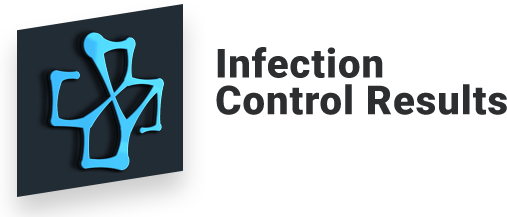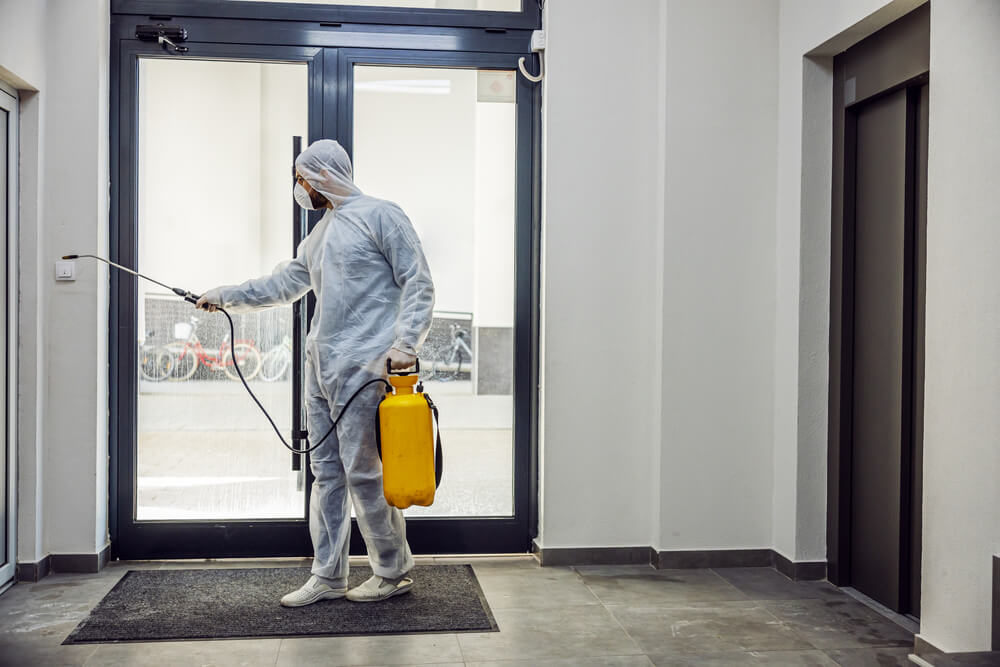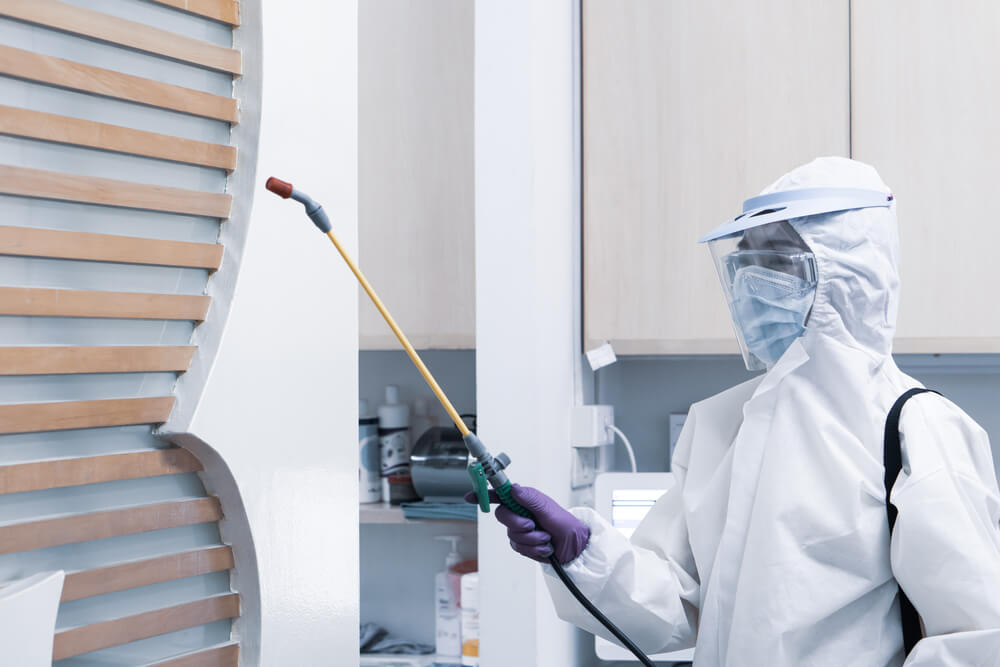
19 Jun What is The Role of an Infection Preventionist?
Medicine is a complex industry. For its smooth function, a hospital or medical establishment requires the participation of many specialized members, all of whom must collaborate across departments and teams. From nurses to equipment technicians, the roles in a hospital are endless.
If you work in medicine, you’ve likely heard of infection prevention. You may not know that infection preventionists are a crucial part of any medical team or establishment—and they can save you and your staff time and money, allowing you to focus on your most important responsibilities. For healthcare professionals, working with an infection preventionist is a must.
This guide contains everything you need to know about the crucial role that infection preventionists play in infection control, prevention, and management.
What Is an Infection Preventionist?
If you’ve worked in healthcare for a while, you’ve likely encountered an infection preventionist. Although they are typically called infection preventionists (IPs), you might have heard them referred to as infection control practitioners, nurse epidemiologists, or infection control officers.
No matter their title, infection preventionists are experts tasked with preventing healthcare-associated infections.
They do so by reviewing patient records remotely, assessing risk, examining data, and aligning policies and practices with guidelines and legal requirements. As a result, they typically have extensive knowledge and expertise across many areas, including:
- Epidemiology
- Data collection and analysis
- Patient advocacy
- Healthcare methodologies
They typically do not work directly with patients; although infection preventionists may be called upon to educate patients or visitors. Infection prevention was once a part-time role, but IPs are often stretched too thin and can miss important details. As a result, it is increasingly becoming a separate role performed by specialists in many healthcare settings. Most infection preventionists have a background in nursing or healthcare in general.
The Importance of Infection Prevention
In all healthcare environments, germs can spread quickly. This is an immense risk to the patient and staff communities, who are often especially vulnerable to such infections. As a result, hospitals, urgent care facilities, long term care facilities, and medical and dental offices must work hard to prevent and mitigate the spread. So, you’re likely wondering what exactly is the role of an infection preventionist? Let’s read on to learn more.
What Do Infection Preventionists Do?
Infection preventionists (IPs) typically work in healthcare settings to reduce the risk of infection and the spread of germs. These healthcare settings can include, but are not limited to:
- Healthcare systems
- Hospitals
- Long-term health facilities
- Clinics
- Ambulatory surgery centers
- Health agencies
- Industry settings
- Non-healthcare settings (e.g., government)
- And more
As population growth promises to increase exponentially, the need for infection preventionists will also continue to climb. At the core of an infection preventionist’s competencies is the need for patient safety and advocacy. IPs must work to promote a culture of safety for their communities. They also specialize in all of the following areas.
Infection Prevention
An IP’s most critical role is to prevent infections. They establish protocols around day-to-day operations like hand washing and surgical procedures. They also promote the safe use of medical devices, improve diagnostic procedures, and implement legal standards and prevention-based precautions to protect the environments they serve.
Infection Management
Unfortunately, infections happen. When they do, infection prevention sites help mitigate the spread, track infections, and minimize harm. They are typically experts in data collection and can help develop high-leverage responses to emergencies. They are up-to-date on emergent pathogens and create preventative plans before an outbreak occurs. They are well-versed in pandemic response and preparedness.
Healthcare Quality
Infection preventionists improve the overall quality of healthcare services by advocating for better performance and conducting research to improve existing practices. As a result, they are invaluable additions to a growth-oriented healthcare establishment.
Epidemiology
IPs have extensive knowledge and experience in the realm of epidemiology and are experts at surveillance and reporting. They know how to leverage the latest technologies in the field of epidemiology, and they do so to enhance the safety of their work environments.
Leadership
Infection preventionists are leaders and change advocates. They know how to assume control in infection emergencies and when to cede their authority to others.
Environmental Concerns
IPs help to promote the quality of the environment they serve. They advocate for air and water quality, construction safety, and the selection and use of products and medical equipment. They also design and implement protocols around common healthcare practices to uphold high standards of safety.
Education
Infection preventionists typically educate others on issues related to infection prevention. They help members of their community understand the vitality of prevention-based practices like hand-washing, and they may work in outreach to educate the outside community as well.
Do I Need an Infection Preventionist?
If you work in healthcare, manage a team of healthcare professionals, or serve a vulnerable community, you likely need the guidance of an infection preventionist. IPs can help mitigate and manage harm from the spread of microorganisms across many different environments, including medical establishments, senior homes, government buildings, and more. Ultimately, it’s better to be safe than sorry—and with cost-effective and comprehensive solutions at your disposal, working with a qualified IP is easier than ever.
Benefits of Having an Infection Preventionist
There are innumerable benefits to working with an infection preventionist. Consider the following before deciding whether to work with one:
- Protect your community: An IP can help prevent and manage threats to your community, saving lives and protecting your community from hardship.
- Affordable and cost-effective: You can generally find an IP that is cost-effective and fits your budget. Additionally, IPs can help you save money over the long-term by preventing costly contaminations and reducing environmental inefficiencies.
- Flexible: An infection preventionist can perform many different capabilities to support your community, and they are often highly flexible—especially when working remotely.
- Saves time: Rather than developing your infection prevention protocol, you can hire a professional to do it for you, saving valuable time.
- Subject matter experts: Infection preventionists are experts in their fields and can provide valuable services for your community.
Find Out More About Working With Infection Control Specialists
Having an infection preventionist can save time, money, and lives. If you seek guidance from an infection preventionist, consider working with Infection Control Results. We serve hospitals and healthcare facilities throughout the medical industry. We’ll start by completing an in-depth assessment of your site and its many unique features, and will work as a team to meet your infection prevention and control needs.
Contact Infection Control Results today for more information on how we can support you in preventing the spread of harmful microorganisms.


